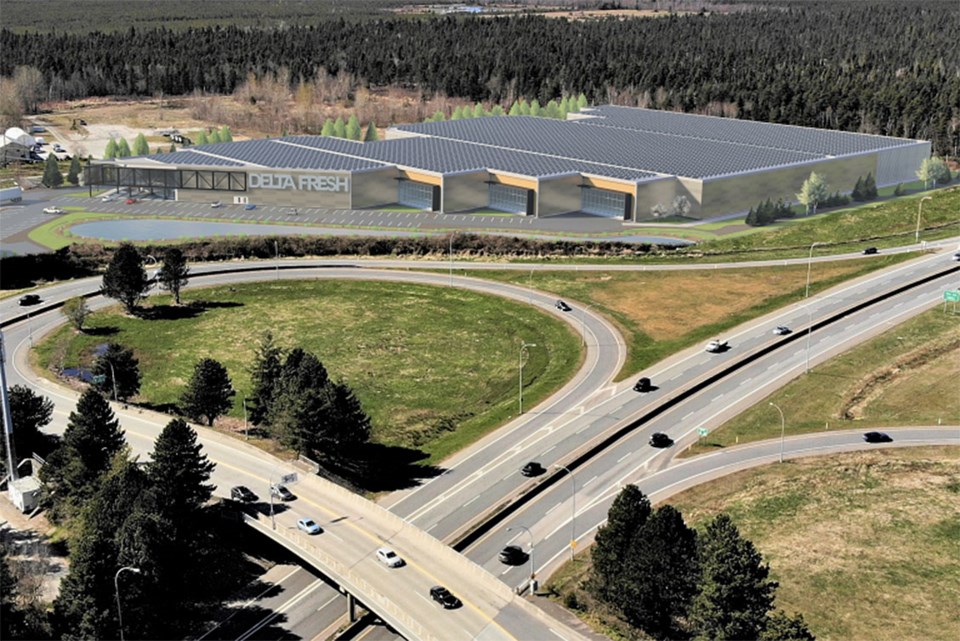An application to build a cold storage and food processing facility on a site adjacent to Burns Bog in East Delta moved a step closer to approval this week.
Still requiring several conditions to be met before council considers granting final approval, the Delta Fresh proposal received third reading by council following a public hearing on Tuesday.
The project would see the development of two properties adjacent to the Highway 91 interchange by 104th Street into the major industrial use.
Comprising six hectares (15 acres), the site is zoned agricultural, but was pulled out of the Agricultural Land Reserve (ALR) decades ago and is not being farmed.
The development would see one building with a total floor area of approximately 293,500-square-feet.
If approved, the cold storage warehouse and processing facility would be for fruits, vegetables and dairy products.
Large-scale cold-storage facilities are currently located mainly in the Fraser Valley or Washington State.
The public hearing saw a dozen speakers with the majority voicing opposition, most conveying a series of concerns regarding impacts to the adjacent Burns Bog.
Most of the correspondence received was also in opposition including a pair of petitions containing a total of 317 signatures. One of the speakers in opposition said she had managed to gather a petition with more than 700 signatures, although not all were Delta residents.
One of the speakers in favour told council farmers are scrambling to stay viable.
Several who spoke against the proposal said they have no doubt such a business is needed by the farming community, but the location is better suited for an industrial area such as Tilbury.
Community planning director Marcy Sangret answered a number of questions raised by speakers during the hearing including that a stormwater management plan would be in place to direct surface flows away from the bog.
Delta’s Agricultural and Hunting Advisory Committee discussed the application at a meeting last week and endorsed the proposal.
Noting the proponent addressed many of the questions that had been raised to Metro Vancouver’s Burns Bog Scientific Advisory Panel, Mayor George Harvie said at a special meeting following the hearing that there has been a lot of misunderstanding and misinformation about the application.
Harvie said in 2004, when he was city manager, he was involved in the purchase of 5,000 acres of Burns Bog by multiple levels of government, ensuring the long-term preservation of the environmentally-important wetland. The private property outside the conservancy had been identified as not essential for the preservation of the bog, he said.
“And every time we have been looking with regards to properties that are outside the bog, our responsibility under the federal conservation covenant is to ensure that the bog lands that were protected are not being adversely affected. That’s where we turn to the experts. That’s where we turn to the scientific advisory panel. We’ve used them before, and we’ve used them in this case. I can’t find anything at this point in time, unless it comes up at fourth reading, that would make me not want to proceed with this application,” he said.
Coun. Alicia Guichon, who chairs the advisory committee, said the project will be beneficial for the farming community, and that she would not consider an application to develop an agriculturally-zoned property if an agrologist determined the soil is good for farming.
The Delta Chamber of Commerce had also previously endorsed the proposal, saying Delta Fresh is a “perfectly positioned example of how heavily compromised agricultural land, which is no longer suitable for farming, can be utilized to benefit both the farming community as well as local consumers.”



